- Home
- Harry Harrison
Wheelworld Page 3
Wheelworld Read online
Page 3
This was the second decision they would have to make, and the most important to him personally. He hoped that Lee Ciou would do as he had agreed. The Pilot Captain did not really like people, did not like politics, and had been hard to convince that he must take a part in what was to come.
“All of this is new,” Jan said. “There must be a coordinator for the changes, then the first trip, and a commander for the second trip. Someone must be in charge. Who do you suggest?”
Another decision. How they hated this. They looked around and murmured. Lee Ciou stood up, stood silently, then forced himself to speak.
“Jan Kulozik must do it. He is the only one who knows what to do.” He sat down at once.
The silence lasted long seconds, while they ran the thought around and around in their minds, shocked by the newness, the break from tradition, the unexpectedness of it all.
“No!” Chun Taekeng shrieked, his face red with an anger even greater than normal, banging and banging with the gavel, unaware he was even doing it. “Ivan Semenov will organize the trip. Ivan Semenov always organizes the trip. He is Trainmaster. That is the way it has been done, that is the way it will always be done.” Spittle flew from his lips with the violence of his words so that those in the front row leaned away, wiping surreptitiously at their faces—though nodding in agreement at the same time. This was something they could understand, neither going back nor going forward, but staying with the tried and true.
“Stop that banging, Taekeng, before you break the hammer,” The Hradil said, hissing the words like a snake. The chairman gaped, he gave orders, he did not take orders, this was without precedent. As he hesitated the gavel hung in midair and The Hradil spoke again before he could gather his thoughts.
“Better, much better. We must think of what is right, not what has been done before. This is a new thing we are doing so perhaps we will need a new organizer. I do not say we do. Perhaps. Why don’t we ask Ivan Semenov what he thinks. What do you think, Ivan?”
The big man rose slowly to his feet, pulling at his beard, looking around at the technical officers and heads of families, trying to read their reactions on their faces. There was no help there. Anger, yes, and a great deal more confusion—but no decision at all.
“Perhaps Jan should be considered, perhaps to plan if you know what I mean. Changes, they must be planned, and two trips. I really don’t know … .”
“If you don’t know, shut up,” Chun Taekeng called out, banging once with the gavel for emphasis. But he had been shouting and banging all night so was ignored. Ivan went on.
“If I don’t know about these changes, then I will need some help. Jan Kulozik knows, it is his plan. He knows what to do. I will organize as always, but he can order the changes to be made. I must approve, yes, I insist, approval, but he could arrange the new things.”
Jan turned away so they could not see his face and know how he felt. How he tried not to, but how he hated these people. He rubbed the back of his hand across his lips to rub away some of the distaste. No one noticed, they were watching The Hradil as she spoke.
“Good. A fine plan A Family Head must command the trip. That is the way it should be done. But the technical officer will advise. I think this is a good idea. I am for it. Anyone against it up with your hand, quick. There, all for it.”
So he was in command—but not in command. Jan had the urge to stand firm, to insist on undisputed control, but this would accomplish nothing. They had bent, so he must bend a bit too. Moving the corn was a necessity, and that came first.
“All right,” he said, “we’ll do it that way. But there can be no arguing, we must agree upon that. Harvesting will stop at once. The cars must be stripped of every nonessential. We must cut everything by half since we will have far less than half the space we normally do. You must tell your people they have one day to make all the arrangements. If you say it like that, they may be finished in two days. I want the first cars empty in two days so we can start loading in the corn. Are there any questions?”
Questions? There was only silence. Do you ask a hurricane how fast it is blowing as it hurls you into the air?
Three
“I think we’re leaving too early. It’s a mistake.”
Hein Ritterspach fiddled with the breech of the fusion cannon, unable to look Jan in the eye. Jan slammed shut the inspection port on the reduction gear and bolted it into place. It was crowded and stuffy in the tank’s driving compartment, and he was aware of the other’s acrid sweat.
“Not early, late if anything, Hein.” He spoke wearily, tired of repeating the same things over and over. “The trains won’t be that far behind you because we’ll be moving faster. We’ll catch up a lot faster than you think. That’s why you will be double-crewed, so you can work a sixteen hour day. I just hope it is enough. Yours is the important job, Hein. Your maintenance people in these tanks have to get over the Road ahead of us and see that it is fit to drive. You know what you are going to find. It’s a job you’ve done before. You’ll just have to work at it a bit harder this time.”
“We won’t be able to move that fast. The men won’t do it.”
“You’ll make them do it.”
“I can’t ask … .”
“You don’t ask, you tell.” The days of frustrating, endless work were telling on Jan. His eyes were red-rimmed and he was perpetually tired. Tired of cajoling, prodding, pushing, forcing these people to do something different just once in their lives. His temper was rubbed raw as well, and the sight of this whining, pudgy idiot became too much. He spun about and poked the man deep in the blubbery gut with his finger.
“You’re a complainer, Hein, do you know that? No one needs a Proctor Captain here, they are too busy and too tired to get into trouble. So you loaf. Only when we move the trains do you do any real work. Now you have got to get out ahead of us and clear the Road, and that is all you have to do. So stop finding excuses and get on with the job.”
“You can’t talk to me like that!”
“I just did. Your tanks and men are ready to roll. I’ve checked the equipment myself, and it’s all on line. Yet this is the third time I have checked this command tank, and there is nothing wrong with it. So move out.”
“You, you … .”
The big man was wordless with rage, raising a large fist over his head. Jan stepped close to him, closing a hard, scarred mechanic’s fist, waiting, smiling.
“Yes, do hit me, why don’t you.”
He had to speak through his teeth, his jaw was so tightly clamped, and his arm shook with restrained tension. Hein could not face him. The fist dropped, and he turned away and climbed clumsily through the hatch, his boots clattering on the rungs outside.
“That’s the end of you, Kulozik!” he shouted, his red face framed by the hatch. “I’m going to Semenov, to Chun Taekeng. You’re getting thrown out, you’ve gone too far … .”
Jan took one weary step forward and raised his fist, and the face vanished instantly. Yes, he had gone too far, had shown the bully to be a coward. Hein would never forgive him. Particularly since there had been a witness. Lajos Nagy sat in the co-driver’s seat in silence, silent but well aware of what had happened.
“Start the motors,” Jan said. “You think I was too hard on him, Lajos?”
“He’s all right when you work with him a while.”
“I’ll bet he’s worse the longer he’s around.”
A deep vibration shook the floor as the gear trains were engaged and Jan cocked his head, listening. The tank was in good shape. “Pass the word to the others, start engines,” he said. He dogged the hatch shut as the air conditioner came on, then slid into the driver’s seat, his feet on the brakes, his hands resting lightly on the wheel that synchronised track speed and clutches. Twenty tonnes of machinery vibrated gently with anticipation, waiting his command.
“Tell them to stay in line behind me, hundred-meter intervals. We’re moving out.”
Lajos hesitated for just an insta
nt before he switched on his microphone and relayed the order. He was a good man, one of Jan’s mechanics when they weren’t on the Road.
Jan eased the wheel forward and tilted it at the same time. The whine of the gearboxes grew in pitch and the tank lurched ahead as the clutches engaged, the heavy tracks slapping down on the solid rock of the Road. When he switched on the rear camera he saw the rest of the tanks rumble to life on the screen and move out behind him. They were on the way. The broad central street of the city slipped past, the looming walls of the warehouses, then the first of the farms beyond. He kept the controls on manual until the last of the buildings was behind him and the Road had narrowed. The tank picked up speed as he switched to automatic and sat back. A wire, imbedded beneath the congealed lava surface of the Road, acted as a guide. The column of tanks roared on past the farms toward the desert beyond.
They were into the sandy wastes, the unreeling ribbon of Road the only sign of mankind’s existence, before the expected message came through.
“I’m having radio trouble, I’ll call you back,” Jan said, switching off the microphone. The other tanks were on FM command frequency, so should not have intercepted the message. Now that he had started this thing he was going to finish it in his own way.
They were over three hundred kilometers from the settlement before they hit the first problem. Sand had drifted across the Road, forming a barrier two meters thick at its highest. Jan halted the column while his tank crawled up the slope. It wasn’t too bad.
“Which are the two with the biggest dozer blades?”
“Seventeen and nine,” Lajos said.
“Get them up here to clean this stuff away. Get a second driver from the house car, have him stay with you until Hein Ritterspach gets here. He won’t be bearable for a couple of days, so try to ignore him. I’ll radio for him to come in a copter, if it’s not on the way already, and I’ll go back with it.”
“I hope there won’t be trouble.”
Jan smiled, tired but happy at having done something. “Of course there will be trouble. That’s all there ever is. But this column is moving fine, Ritterspach won’t dare turn back now. All he can do is push on.”
Jan sent the message, then kicked open the hatch and climbed down onto the sand. Was it warmer here—or just his imagination? And wasn’t it lighter on the southern horizon? It might very well be; dawn wasn’t that far away. He stood aside while the tanks ground up the slope and churned past him, the last in the column, towing the house car, stopping just long enough for the relief driver to climb down. The dozers were just attacking the sand when the flutter of the helicopter could be heard above the sound of their tracks. It had been on the way well before his message had been received. It circled once, then settled slowly onto the Road. Jan went to meet it.
Three men climbed down, and Jan knew that the trouble was not over, was perhaps just beginning. He spoke first, hoping to keep them off balance.
“Ivan, what the devil are you doing here? Who is taking care of things with both of us out on the Road?”
Ivan Semenov twisted his fingers in his beard and looked miserable, groping for words. Hein Ritterspach, an assistant Proctor close by his side, spoke first.
“I’m taking you back, Kulozik, under official arrest. You are going to be charged with … .”
“Semenov, exert your authority,” Jan called out loudly, turning his back on the two Proctors, well aware of the sidearms that both men wore, their hands close to the butts. There was a tightness between his shoulder blades that he tried to ignore. “You are Trainmaster. This is an emergency. The tanks are clearing the Road. Hein must be with them, he is in command. We can talk about his little problems when we get to Southtown.”
“The tanks can wait; this must be done first! You attacked me!”
Hein was shaking with rage, his gun half drawn. Jan turned sideways enough to watch both Proctors. Semenov finally spoke.
“A serious matter, this. Perhaps we had all better return to town and discuss it quietly.”
“There is no time for discussion—or quiet.” Jan shouted the words, pretending anger to feed the other’s anger as well. “This fat fool is under my command. I never touched him. He’s lying. This is mutiny. If he does not instantly rejoin the tanks I shall charge him and disarm him and imprison him.”
The slash of the words was, of course, too great a burden for Hein to bear. He pawed at his holster, clutched his gun and drew it. As soon as the muzzle was clear, before it could be raised, Jan acted.
He turned and grabbed Hein’s wrist with his own right hand, his left hand slapping hard above the other’s elbow. Still turning, using speed and weight, he levered the man’s arm up beside his back so hard that Hein howled with pain. Uncontrollably the big man’s fingers went limp, the gun began to drop—and Jan kept pushing. It was cruel, but he must do it. There was a cracking sound that shuddered Hein’s body as the arm broke, and only then did Jan let go. The gun clattered on the stone surface of the Road and Hein slid down slowly after it. Jan turned to the other armed man.
“I am in command here, Proctor. I order you to aid this wounded man and take him into the copter. Trainmaster Semenov concurs with this order.”
The young Proctor looked from one to the other of them in an agony of indecision. Semenov, confused, did not speak, and his silence gave the man no guide. Hein groaned loudly with pain and writhed on the unyielding rock. With this reminder the Proctor decided; he let his half-drawn gun drop back into the holster and knelt beside his wounded commander.
“You should not have done that, Jan.” Semenov shook his head unhappily. “It makes things difficult.”
Jan took him by the arm and drew him aside. “Things were already difficult. You must take my word that I never attacked Hein. I have a witness to back me up if you have any doubts. Yet he built this trouble up so large that one of us had to go. He is expendable. His second in command, Lajos, can take over. Hein will ride in the train, and his arm will knit, and he’ll cause more trouble at Southtown. But not now. We must move as planned.”
There was nothing for Semenov to say. The decision had been taken from him and he did not regret it. He took the medical bag from the copter and attempted to fit an airbag splint onto the broken arm. They could only do this after an injection had put the wailing Hein under. The return trip was made in silence.
Four
Jan lay back on his bunk, his muscles too tired to relax, going over his lists just one more time. They were only hours away from departure. The last of the corn was being loaded now. As the silos were emptied the partitions were removed so that the heavy equipment could be rolled in. Coated with silicon grease and cocooned with spun plastic, they would sit out the 200 degree heat of the four-year long summer. All of them, trucks, copters, reapers, were duplicated and in storage at Southtown, so need not be carried with them on the trek. They had their stocks of frozen food, the chicks, lambs and calves to start anew the herds and flocks, home furnishings—now painfully reduced—and the corn filling most of all the cars. The water tanks were full; he wrote and underlined. Water. First thing in the morning he must hook into the computer relay and put the Northpoint desalination plant on standby. It had already stopped all secondary functions, chemical and mineral extraction, fertilizer production, and was operating at minimum to keep the 1300-kilometer-long canal and tunnel complex filled with water. He could stop that now; the farming was over for this season. There was a knock on the door, so soft at first that he wasn’t sure he had heard it. It was repeated.
“Just a moment.”
He pushed the sheets of paper together into a rough heap and dropped them onto the table. His legs were stiff as he shuffled across the plastic floor in his bare feet and opened the door. Lee Ciou, the radio technician, stood outside.
“Am I bothering you, Jan?” He seemed worried.
“Not really. Just rattling papers when I should be sleeping.”
“Perhaps another time … .”
/> “Come in, now you’re here. Have a cup of tea and then maybe we’ll both get some sleep.”
Lee bent and picked up a box that had been out of sight beside the door, and brought it in with him. Jan busied himself with boiling water from the kitchen tap, hotting the pot, then adding tea leaves to brew. He waited for Lee to talk first. Lee was a quiet man with a mind like one of his own printed circuits. Thought was processed back and forth, emerging only after a measured period of time, complete and final.
“You are from Earth,” he finally said.
“I think that is a pretty well known fact. Milk?”
“Thank you. On Earth, I understand, there are many levels of society, not just a single population as we have here?”
“You might say that. It’s a varied society; you’ve seen a lot of it on the programs from Earth. People have different jobs, live in different countries. Lots of variety.”
Lee’s forehead had a fine beading of sweat; he was disturbed, uncomfortable. Jan shook his head wearily and wondered just where this was all leading.
“Are there criminals, too?” Lee asked, and Jan was suddenly very much awake.
Careful, Jan thought, be very careful. Don’t say too much; don’t commit yourself.

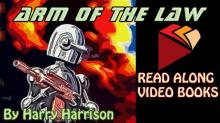 Arm of the Law
Arm of the Law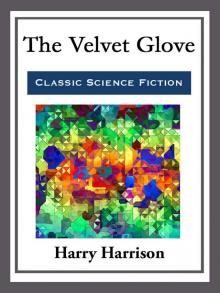 The Velvet Glove
The Velvet Glove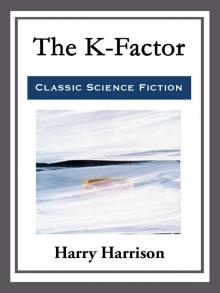 The K-Factor
The K-Factor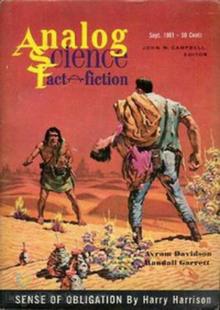 Sense of Obligation
Sense of Obligation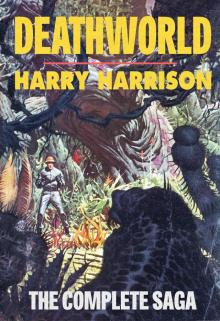 Deathworld: The Complete Saga
Deathworld: The Complete Saga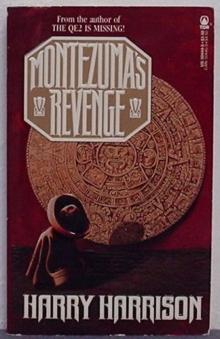 Montezuma's Revenge
Montezuma's Revenge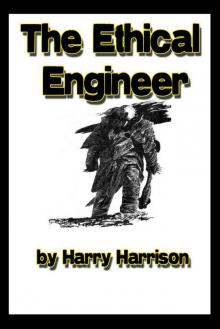 The Ethical Engineer
The Ethical Engineer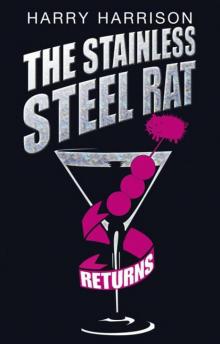 The Stainless Steel Rat Returns
The Stainless Steel Rat Returns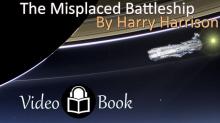 The Misplaced Battleship
The Misplaced Battleship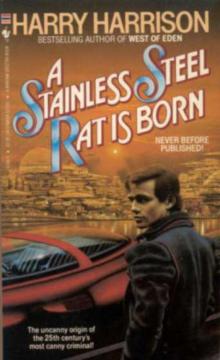 The Stainless Steel Rat is Born
The Stainless Steel Rat is Born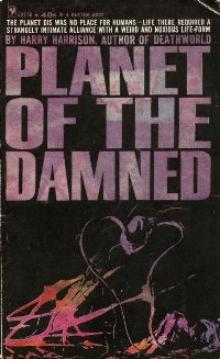 Planet of the Damned bb-1
Planet of the Damned bb-1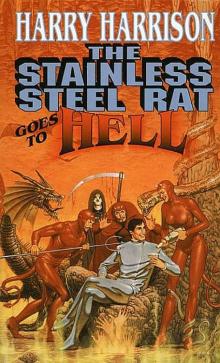 The Stainless Steel Rat Goes to Hell ssr-10
The Stainless Steel Rat Goes to Hell ssr-10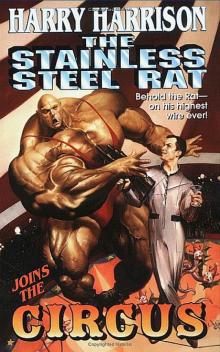 The Stainless Steel Rat Joins the Circus ssr-11
The Stainless Steel Rat Joins the Circus ssr-11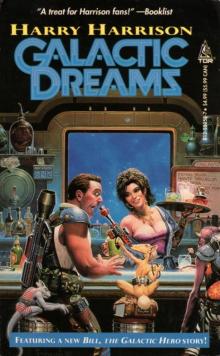 Galactic Dreams
Galactic Dreams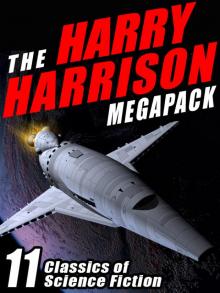 The Harry Harrison Megapack
The Harry Harrison Megapack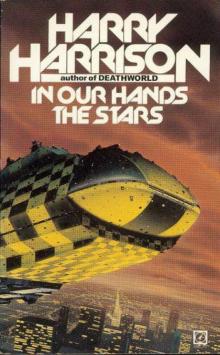 In Our Hands the Stars
In Our Hands the Stars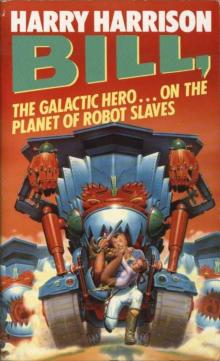 On the Planet of Robot Slaves
On the Planet of Robot Slaves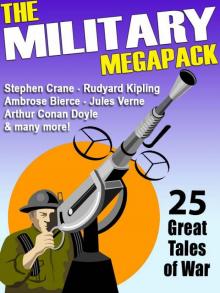 The Military Megapack
The Military Megapack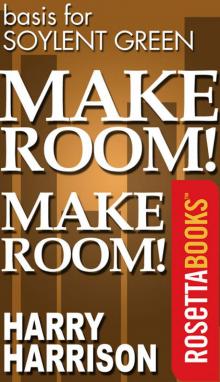 Make Room! Make Room!
Make Room! Make Room!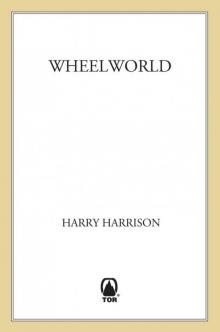 Wheelworld
Wheelworld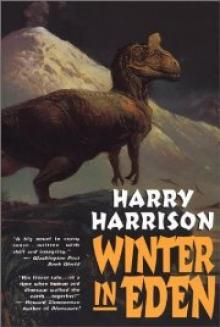 Winter in Eden e-2
Winter in Eden e-2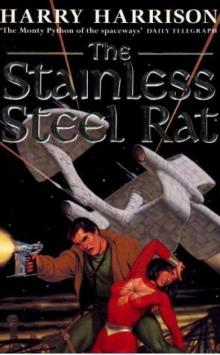 The Stainless Steel Rat
The Stainless Steel Rat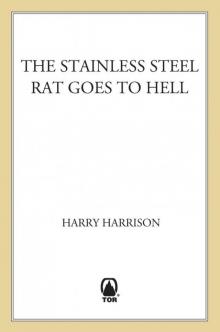 The Stainless Steel Rat Goes to Hell
The Stainless Steel Rat Goes to Hell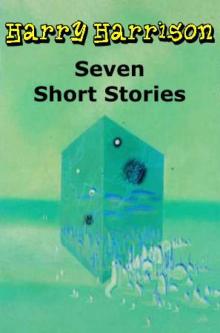 Harry Harrison Short Stoies
Harry Harrison Short Stoies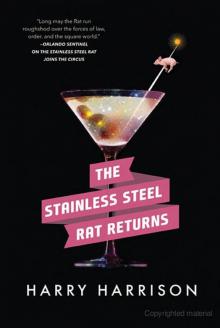 Stainless Steel Rat 11: The Stainless Steel Rat Returns
Stainless Steel Rat 11: The Stainless Steel Rat Returns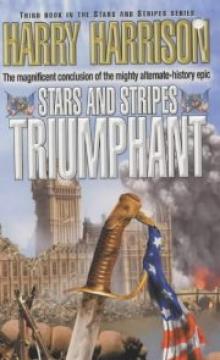 Stars and Stripes Triumphant sas-3
Stars and Stripes Triumphant sas-3 West of Eden
West of Eden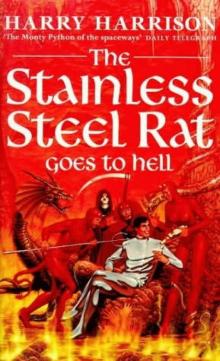 The Stainless Steel Rat Go's To Hell
The Stainless Steel Rat Go's To Hell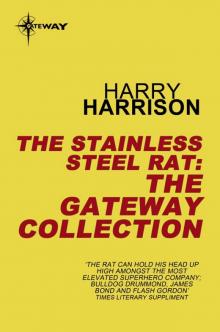 The Stainless Steel Rat eBook Collection
The Stainless Steel Rat eBook Collection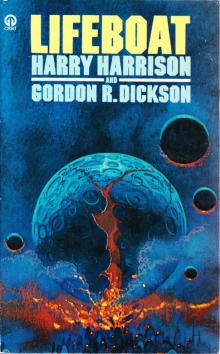 Lifeboat
Lifeboat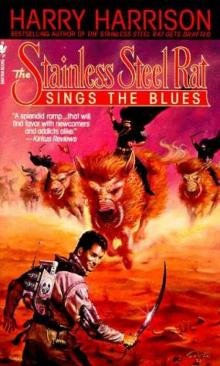 The Stainless Steel Rat Sings the Blues
The Stainless Steel Rat Sings the Blues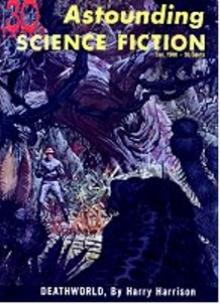 Deathworld tds-1
Deathworld tds-1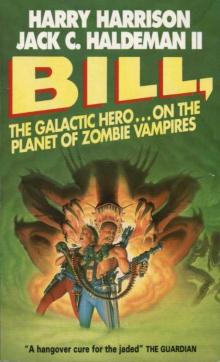 On the Planet of Zombie Vampires
On the Planet of Zombie Vampires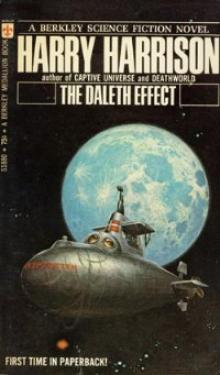 The Daleth Effect
The Daleth Effect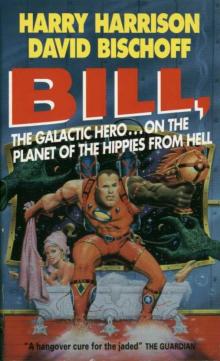 On The Planet Of The Hippies From Hell
On The Planet Of The Hippies From Hell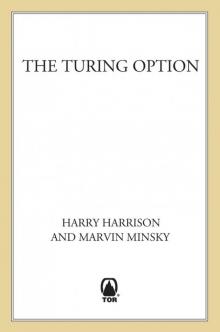 The Turing Option
The Turing Option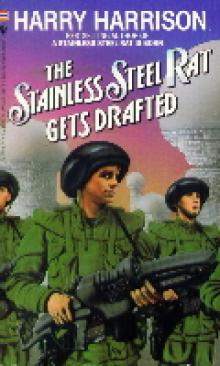 The Stainless Steel Rat Gets Drafted
The Stainless Steel Rat Gets Drafted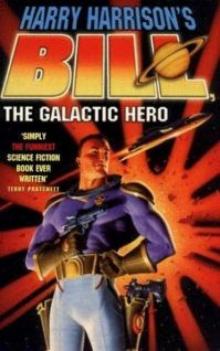 Bill, the Galactic Hero btgh-1
Bill, the Galactic Hero btgh-1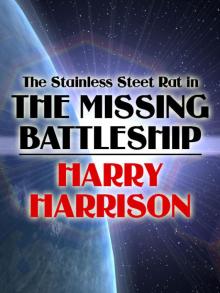 The Stainless Steel Rat in The Missing Battleship
The Stainless Steel Rat in The Missing Battleship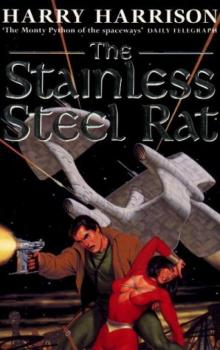 The Stainless Steel Rat ssr-1
The Stainless Steel Rat ssr-1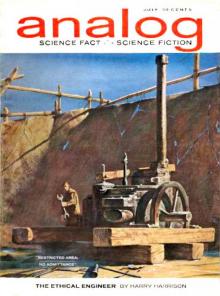 The Ethical Engineer (the deathworld series)
The Ethical Engineer (the deathworld series)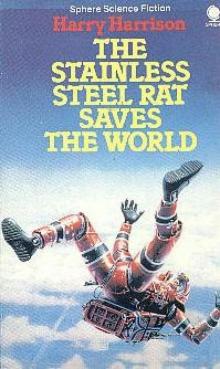 The Stainless Steel Rat Saves the World ssr-3
The Stainless Steel Rat Saves the World ssr-3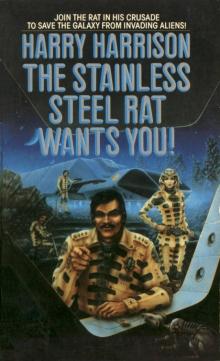 The Stainless Steel Rat Wants You
The Stainless Steel Rat Wants You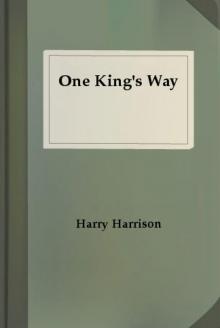 One King's Way thatc-2
One King's Way thatc-2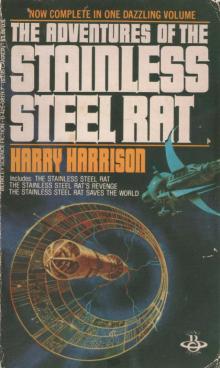 The Stainless Steel Rat Saves The World
The Stainless Steel Rat Saves The World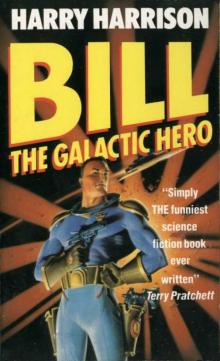 Bill, the Galactic Hero
Bill, the Galactic Hero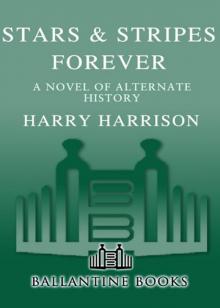 Stars & Stripes Forever
Stars & Stripes Forever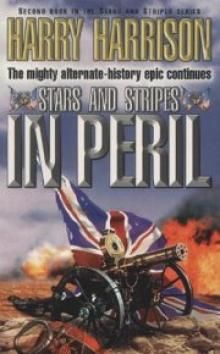 Stars and Stripes In Peril sas-2
Stars and Stripes In Peril sas-2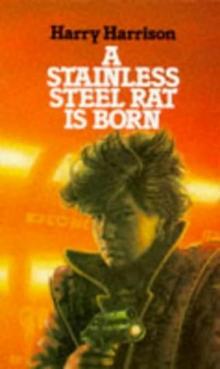 A Stainless Steel Rat Is Born ssr-6
A Stainless Steel Rat Is Born ssr-6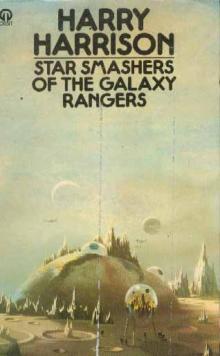 Star Smashers of the Galaxy Rangers
Star Smashers of the Galaxy Rangers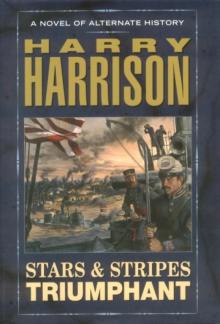 Stars & Stripes Triumphant
Stars & Stripes Triumphant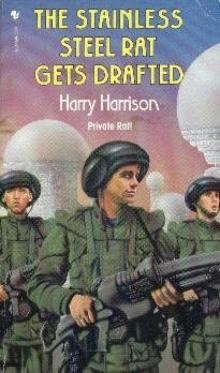 The Stainless Steel Rat Gets Drafted ssr-7
The Stainless Steel Rat Gets Drafted ssr-7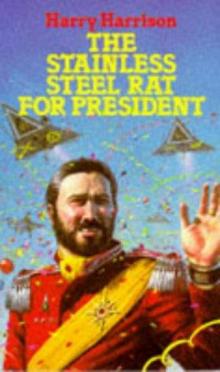 The Stainless Steel Rat for President ssr-5
The Stainless Steel Rat for President ssr-5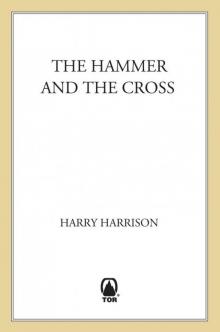 The Hammer & the Cross
The Hammer & the Cross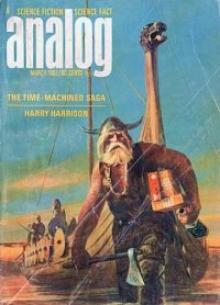 The Technicolor Time Machine
The Technicolor Time Machine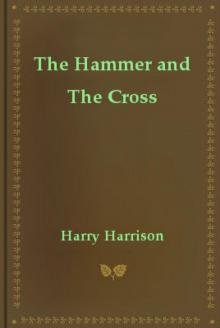 The Hammer and The Cross thatc-1
The Hammer and The Cross thatc-1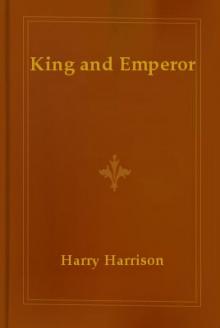 King and Emperor thatc-3
King and Emperor thatc-3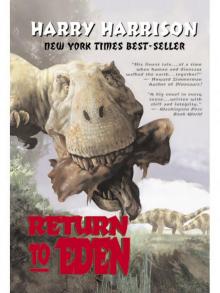 Return to Eden
Return to Eden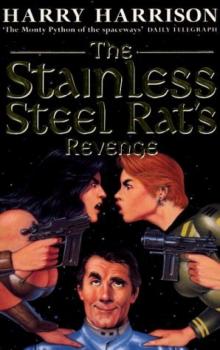 The Stainless Steel Rat’s Revenge ssr-2
The Stainless Steel Rat’s Revenge ssr-2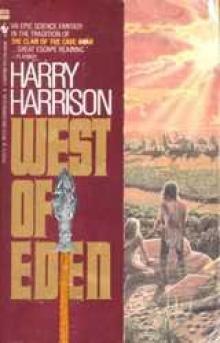 West of Eden e-1
West of Eden e-1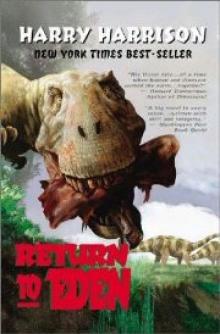 Return to Eden e-3
Return to Eden e-3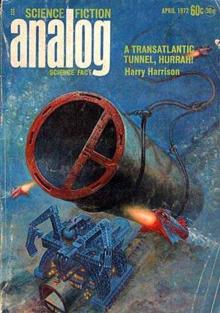 A Transatlantic Tunnel, Hurrah!
A Transatlantic Tunnel, Hurrah!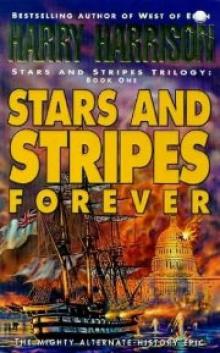 Stars and Stripes Forever sas-1
Stars and Stripes Forever sas-1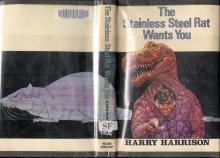 The Stainless Steel Rat Wants You ssr-4
The Stainless Steel Rat Wants You ssr-4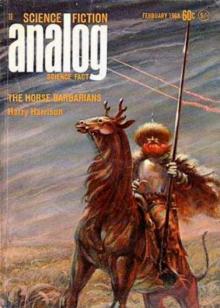 The Horse Barbarians tds-3
The Horse Barbarians tds-3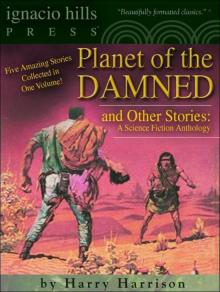 Planet of the Damned and Other Stories: A Science Fiction Anthology (Five Books in One Volume!)
Planet of the Damned and Other Stories: A Science Fiction Anthology (Five Books in One Volume!)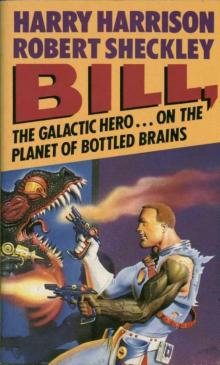 On the Planet of Bottled Brains
On the Planet of Bottled Brains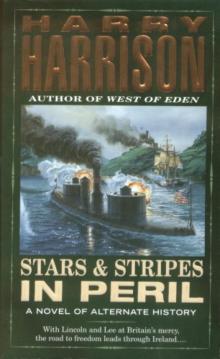 Stars And Stripes In Peril
Stars And Stripes In Peril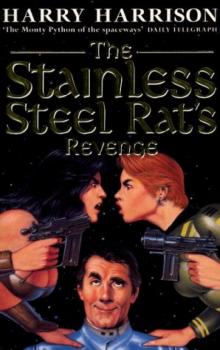 The Stainless Steel Rat's Revenge
The Stainless Steel Rat's Revenge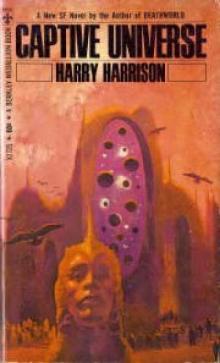 Captive Universe
Captive Universe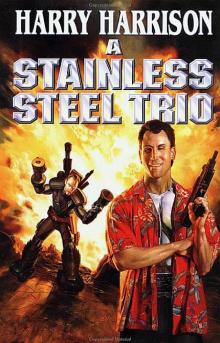 The Stainless Steell Rat Sings the Blues ssr-8
The Stainless Steell Rat Sings the Blues ssr-8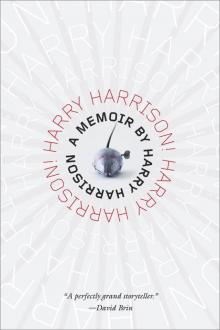 Harry Harrison! Harry Harrison!
Harry Harrison! Harry Harrison!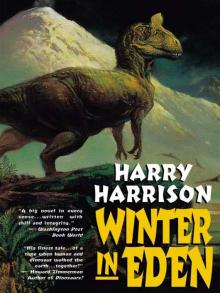 Winter in Eden
Winter in Eden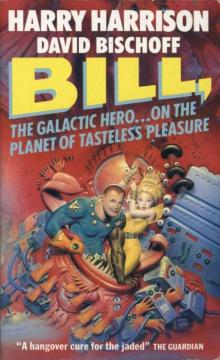 On the Planet of Tasteless Pleasures
On the Planet of Tasteless Pleasures